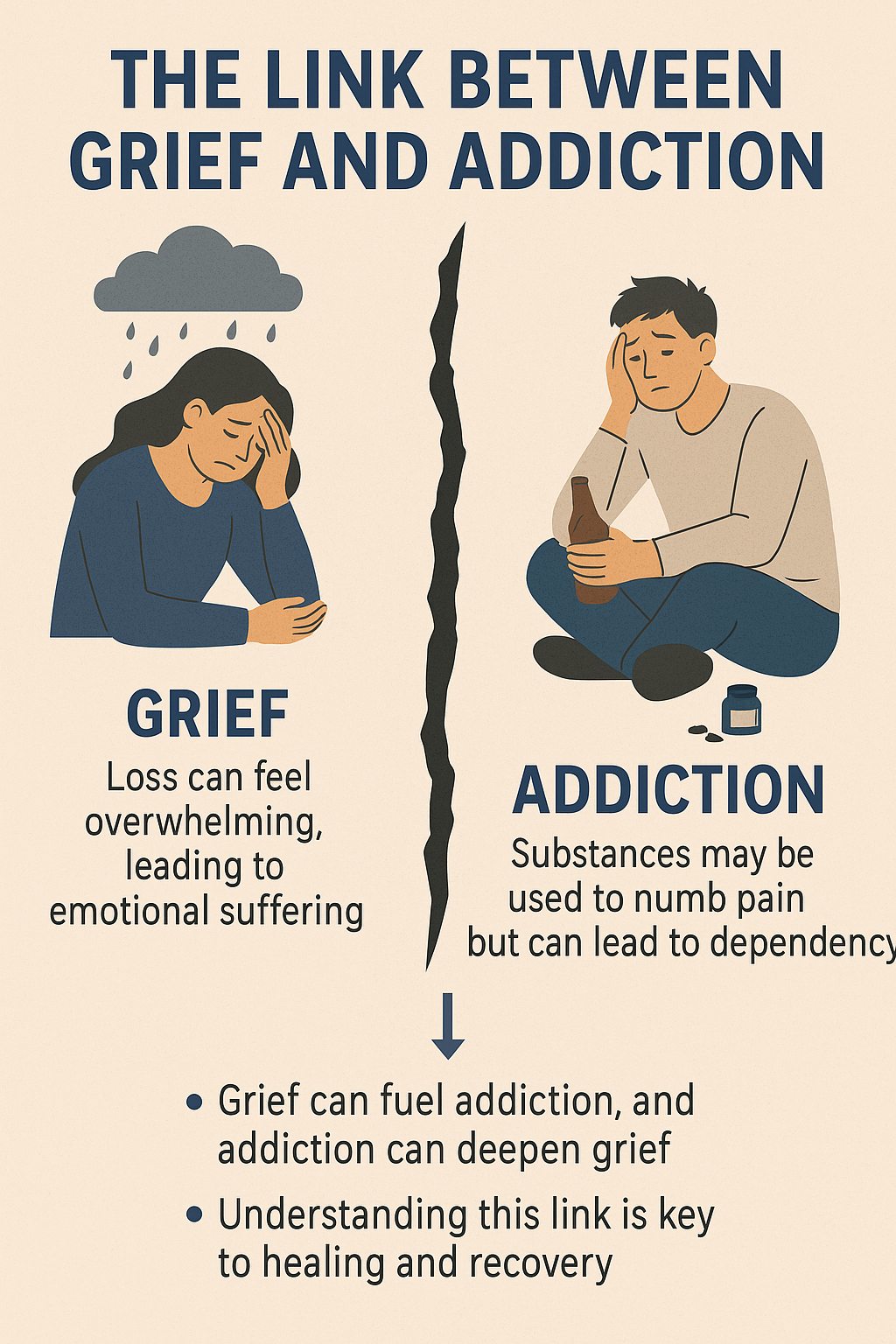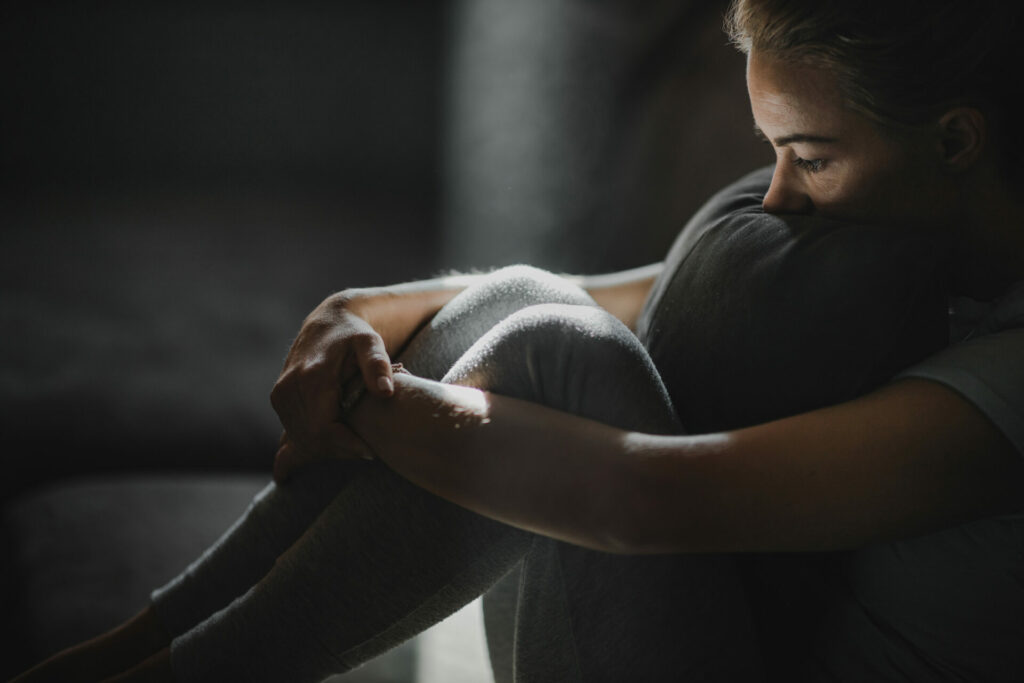Grief can strike without warning, unraveling routines and shaking how I see myself and connect with others. The pain can feel so heavy that I start searching for anything to ease it, even briefly. What many don’t realize is how easily that search can lead to substance use—a drink to calm the nerves, a pill to numb the sadness, or a distraction to escape the emptiness. I’ve seen it happen: someone loses a loved one, and in trying to cope, they begin to rely on substances for comfort. Over time, the line between healing and escaping blurs. This connection between grief and addiction often hides in plain sight, but it needs compassion, awareness, and honest conversation.
The Overlap: Why Grief and Addiction Often Show Up Together
Grief isn’t just about sadness or missing someone; it can launch a full-scale assault on both my mind and body. When I’m grieving, emotions get unpredictable, and the usual ways I manage stress might stop working. That’s when numbing out with substances may start looking pretty tempting.
The link between grief and addiction is deep-rooted. Some researchers have found that after a significant loss, people are at higher risk for developing substance use disorders. It’s about seeking relief, distraction, or perhaps even a sense of connection that has been missing since the loss. The National Institute on Drug Abuse offers more insight on this topic for those interested in the science behind it.
There are a few key reasons this connection tends to show up:
- Emotional overwhelm: When grief feels unbearable, substances can seem like a fast fix to dial down the pain, even if it’s only temporary.
- Sleep struggles: Insomnia after a loss might lead someone to use alcohol or pills to rest.
- Isolation: When grief makes it hard to connect, substances might fill that space, even for a while.
How Grief Impacts the Brain, And Opens the Door for Addiction
From the outside, grief may seem like a lot of sadness and tears, but it actually triggers a complex chain of reactions in the brain. I learned that profound grief hits many of the same centers involved in reward and pleasure. These are the areas that light up when someone uses drugs or alcohol too, so it’s no wonder the two experiences often overlap.
- Dopamine dips: That feel-good chemical takes a hit during deep grief, which can leave me searching for ways to get it back.
- Stress overload: My brain’s stress responses become overactive, releasing excessive amounts of hormones, such as cortisol. Substances can temporarily lower those feelings but worsen them in the long run.
- Memory and emotion mix-up: The brain stores vivid memories of loss, often making me relive the pain. Substances might distract me in the short term.
Learning about this brain chemistry has helped me see why turning to substances doesn’t mean someone is weak; it means their brain is doing what it can to avoid overwhelming pain. This knowledge makes it even more critical to approach the topic with compassion.
Common Traps: Substance Use After Loss
Grief and addiction don’t look the same for everyone. Some people might sip an extra glass of wine every night; others might escalate quickly into heavy use of drugs or binge drinking. I’ve noticed a few pretty common patterns:
- Drinking to numb out: Alcohol is easy to get and socially accepted, so a nightly drink sometimes turns into several, and soon becomes a routine.
- Pills to “take the edge off”: Sometimes prescribed for anxiety or sleep, these meds can be misused if grief relief isn’t coming from anywhere else.
- Binge use: Using substances in spurts, like partying every anniversary or holiday related to the loss, can feel like a form of self-medication.
Each of these coping mechanisms usually starts with a need for comfort. Over time, relying on them can create way more problems, turning grief into a double burden: loss and addiction.
Real Life: My Personal Experience Steering Through Grief and Addiction
I know firsthand how blurry the boundaries get between healthy grieving and unhealthy habits. After losing someone close, I found myself reaching for anything that would make the emptiness fade, even just for an evening. At first, it seemed harmless. “I deserve to relax tonight,” I’d tell myself.
However, eventually, the relaxation wore off, and the sadness returned with greater intensity. The hangovers and regret made my grief worse. What made a real difference was talking to friends and letting myself feel the hard stuff, even when that felt overwhelming. Seeing a therapist helped me build better ways to process loss, and slowly, the need for escape lost its grip.
Personal reflection has proven to be a powerful tool. Taking time to journal about my feelings, focusing on memories, and even dedicating a small ritual to my loved one helped me connect with the sadness without running from it. Through these practices, I’ve learned that recovery from loss isn’t about erasing pain but making room for it and slowly learning to coexist with it. This kind of honest self-examination can really help others spot patterns early, before grief and addiction get tangled up too tightly.
What To Watch For: Signs When Grief Might Be Turning into Addiction
Spotting when grief is switching from sadness into substance use takes a bit of honesty. For me, it started as just needing a break from the pain, just some downtime. But there are a few warning signs I’ve learned to check for:
- Relying on substances to sleep, socialize, or “get through the day.”
- Lying to friends or family about how much I’m using.
- Withdrawing from hobbies and relationships in favor of drinking or using.
- Needing more of a substance to feel “okay.”
Recognizing these changes early made a massive difference for me. Honest check-ins with myself—and with people I trust—helped me keep things in perspective when the grief addiction cycle got tempting. Sometimes, a trusted friend pointing out these habits gently can be the wakeup call needed to get back on track.
Breaking the Cycle: Healthier Ways to Cope with Grief
I found that what really helps is creating routines that support both my body and my mind, basically giving myself alternatives to numbing out. Some approaches that made a difference for me include:
- Finding supportive people: Trusted friends or support groups (like GriefShare) made the days that were tricky feel more manageable.
- Talking to a therapist: Professional support helped me learn it’s okay to feel all my feelings—no need to bottle it up or pour a bottle to drown it.
- Creating meaningful rituals: Lighting a candle, journaling, or spending time in nature helped me honor my loss without falling into old, unhelpful patterns.
- Moving my body: Even a walk outside helped move some of that heavy grief energy, so it didn’t turn inward.
Additionally, meditation, volunteering, or engaging in a creative activity, such as art classes or music, can boost healing and offer new outlets for emotional expression. For anyone dealing with grief, these tools might take time to feel natural, but they helped me heal far more sustainably than any short-term escape ever did. Many addiction recovery guides, like those from SAMHSA, include similar recommendations.
Roadblocks and Setbacks: What Gets in the Way
Even with good intentions, sometimes grief and addiction are tricky to untangle on my own. Stigma can make it hard to ask for help; there’s a lot of pressure to “move on” or “stay strong.” That expectation makes things worse, pushing some people deeper into isolation or substance use to avoid judgment.
- Stigma: Worrying about what others think makes asking for help tougher.
- Lack of access: Not everyone has easy access to affordable counseling or support groups.
- Cycles of relapse: Sometimes, making progress means having setbacks, but that’s normal and okay. It’s all part of learning healthier coping.
Knowing these obstacles exist helps me be kind to myself—and to anyone else who’s wrestling with the same challenges. Staying flexible and practicing patience are crucial to moving forward, even if the path takes a few unexpected turns. Reaching out for help, even just a little, keeps the process moving in a better direction.
Frequently Asked Questions
Question: Is it normal to use substances when grieving?
Answer: It’s common, but not ideal. Lots of people reach for a drink or another substance to deal with pain. If it becomes a habit or feels like the only way to cope, it’s probably time to check in with someone I trust or a professional.
Question: How long does it take to heal from grief without using substances?
Answer: Grief moves at its own pace for everyone. There’s no set timeline, but finding connection, support, and healthy routines can make the process smoother and safer than masking it with substances.
Question: What should I do if a loved one is grieving and using substances?
Answer: Reach out in a caring way, letting them know you’re there for them. Suggest a support group, therapist, or offer a nonjudgmental ear. Sometimes, having someone to lean on can be the turning point.
Practical Steps for Healing
Grief and addiction don’t have to go hand in hand. The real key is staying honest with myself or anyone I care about about how I’m handling pain. Support, routine, and healthier coping methods can ease the adventure. The first step is often the hardest, but it’s also the one that gets momentum going in a better direction.
Staying connected and giving grief the attention it needs can make a significant difference, even when things look bleak. That’s how healing really begins.
Video: The Link Between Grief and Addiction

